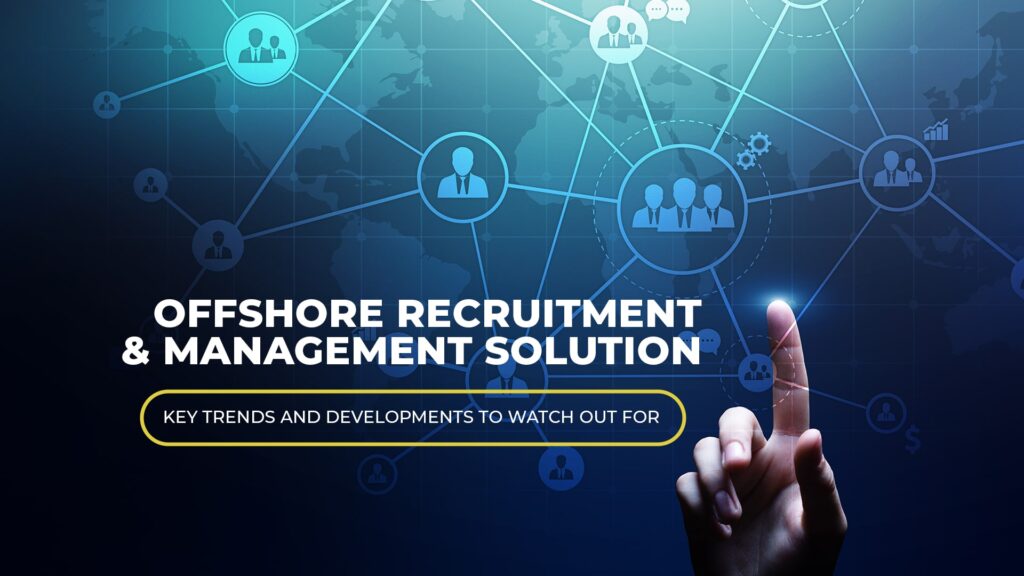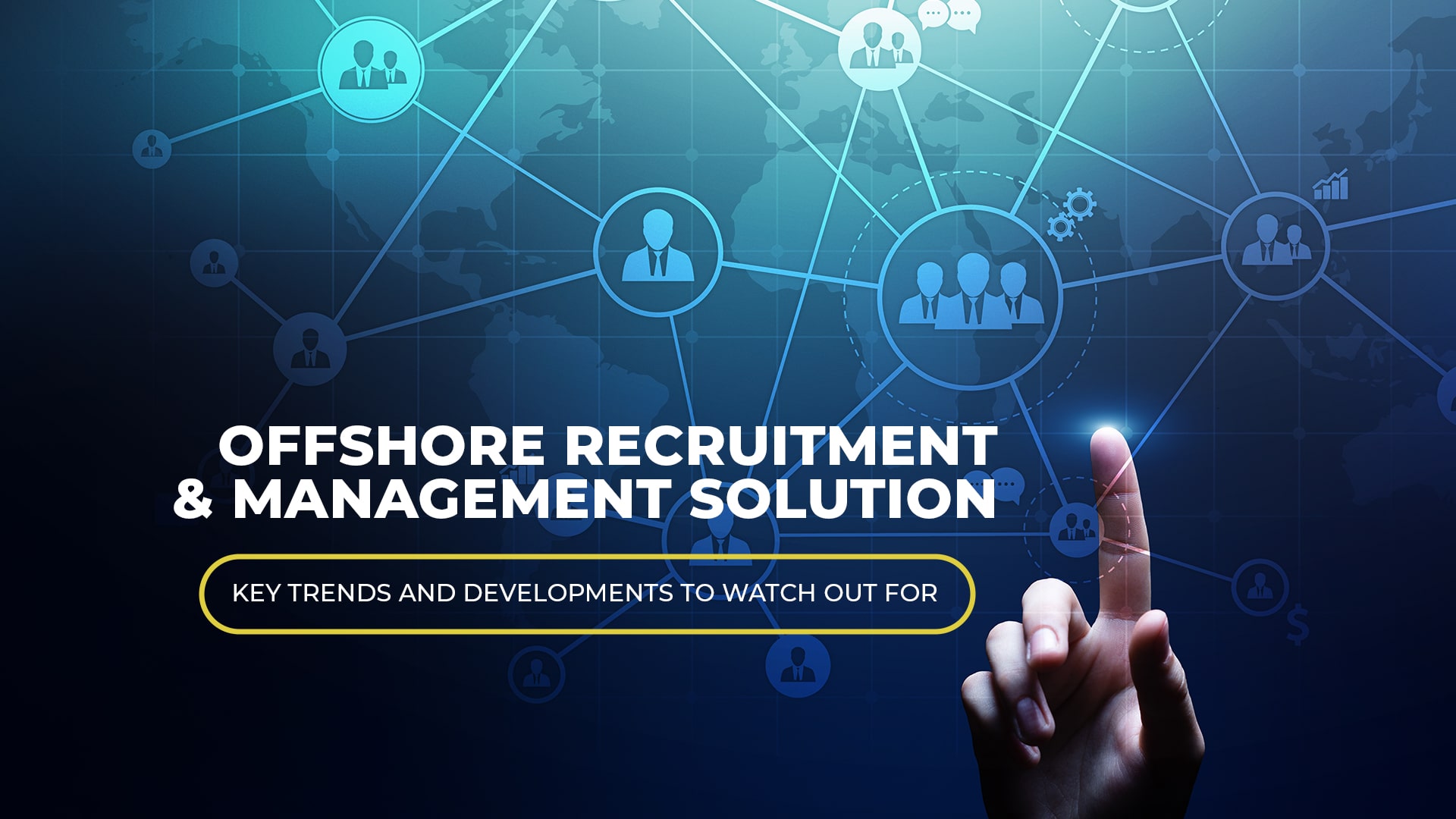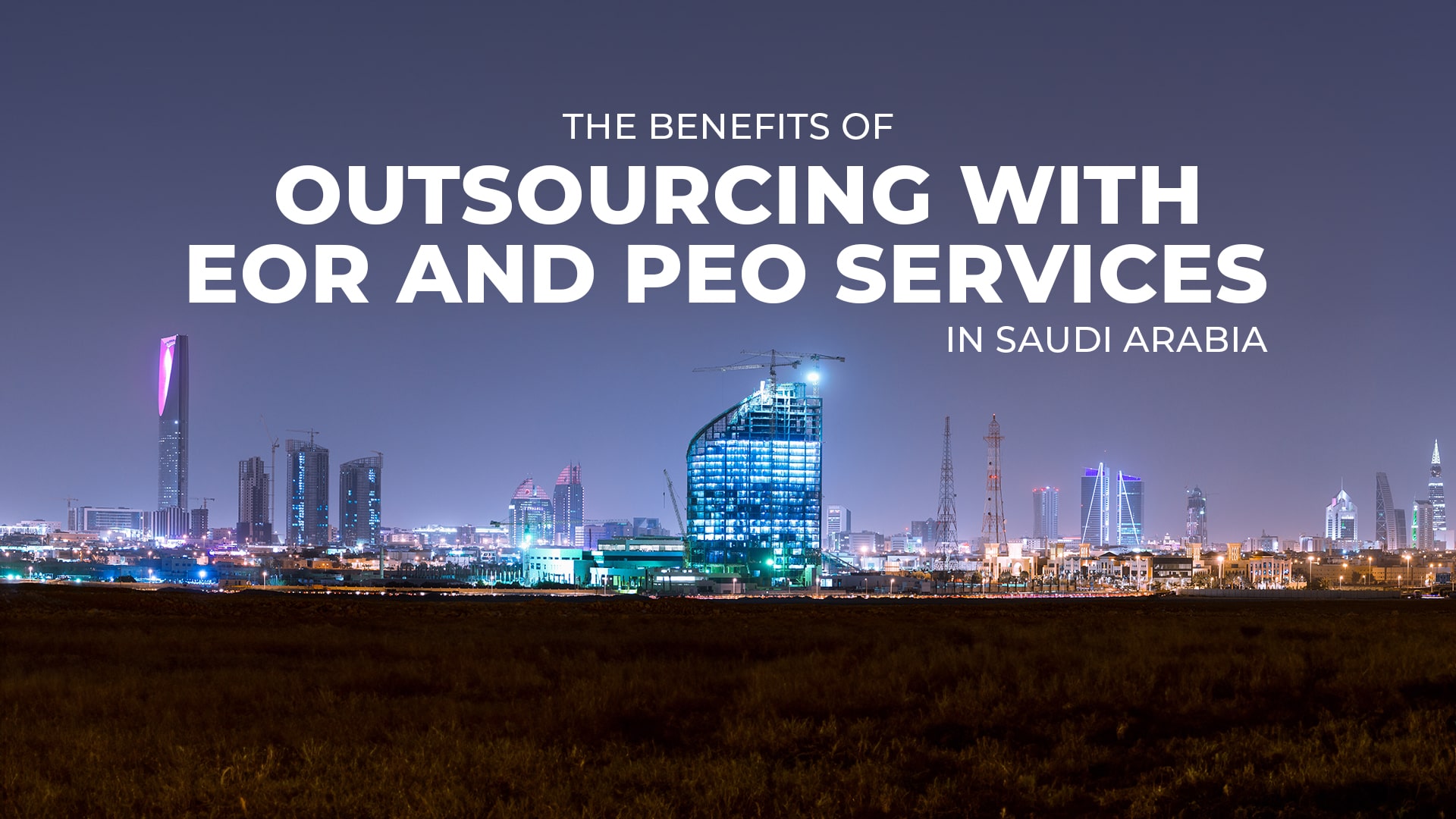Introduction
Embarking on a global journey in talent acquisition and management unveils a landscape of evolving trends and pivotal developments. In this exploration of ‘Offshore Recruitment and Management Solutions’, we navigate the dynamic currents shaping the future of workforce strategies. Join us as we delve into the key trends and developments to watch closely.
Table of Contents
Global Talent Acquisition Strategies
In the ever-evolving landscape of offshore recruitment and management solutions, several trends are reshaping strategies to attract and manage global talent. One predominant trend is the increased reliance on digital platforms and technologies. Virtual communication tools, AI-driven applicant tracking systems, and data analytics streamline the recruitment process, enabling organizations to cast a wider net and identify suitable candidates with greater efficiency.
Globalization has undeniably transformed talent acquisition, transcending geographical boundaries. Organizations now have access to a vast pool of skilled professionals from diverse cultural backgrounds. This shift has led to a more inclusive and competitive job market, prompting businesses to adopt recruitment strategies that are agile, cross-cultural, and responsive to varied skill sets.
The impact of globalization on talent acquisition extends beyond geographical reach; it necessitates a paradigm shift in fostering diversity within the workforce. Companies are recognizing the intrinsic value of a diverse and international team. A multicultural workforce brings unique perspectives, fostering innovation and adaptability. Moreover, it aligns with the globalized nature of modern business operations, enhancing a company’s ability to navigate international markets and serve diverse customer bases effectively.
The importance of a diverse and international workforce cannot be overstated. Beyond the ethical imperative, diversity contributes to a company’s bottom line by enhancing creativity, problem-solving, and overall organizational performance. It also facilitates a more inclusive workplace culture, boosting employee morale and engagement. As organizations continue to embrace these trends, offshore recruitment and management solutions strategies evolve, emphasizing not only skills and qualifications but also the richness of diverse experiences and perspectives.
Technology Integration in Offshore Recruitment and Management Solutions
The integration of technology into the recruitment process has revolutionized the way organizations attract, assess, and hire talent. Artificial Intelligence (AI), machine learning, and automation play pivotal roles in this transformation, offering efficiency, precision, and data-driven insights. AI and machine learning algorithms analyze vast datasets to identify patterns and predict candidate suitability, streamlining the initial stages of recruitment. Automation handles repetitive tasks, such as resume screening and interview scheduling, allowing recruiters to focus on strategic decision-making and relationship-building.
One notable benefit of technology adoption in offshore recruitment and management solutions is the acceleration of the hiring process. Automation expedites candidate screening, shortlisting, and communication, reducing time-to-hire significantly. Moreover, these technologies enhance objectivity by minimizing human biases in the selection process, promoting fairer and more inclusive hiring practices.
However, challenges accompany these advancements. The reliance on algorithms may inadvertently perpetuate biases present in historical data, leading to unintended discrimination. Additionally, the need for a balance between automation and human touch is crucial, especially in roles requiring emotional intelligence and interpersonal skills.
In offshore recruitment and management solutions, technology mitigates geographical barriers, enabling organizations to source and engage with talent across borders seamlessly. Virtual collaboration tools facilitate communication, assessment, and onboarding processes, making it possible to build and manage global teams effectively.
Nevertheless, the digital divide and varying technology infrastructure in different regions pose challenges. Ensuring that all candidates, regardless of location, have equitable access to the recruitment process is crucial. Striking the right balance between technology-driven efficiency and maintaining a human-centric approach is key to harnessing the full potential of technological transformations in offshore recruitment and management solutions.
Remote Work Dynamics and Team Management
The global shift towards remote work has profound implications for offshore teams, transforming traditional work paradigms and introducing new challenges and opportunities. Effective communication and collaboration are central to the success of remote offshore teams, requiring organizations to leverage advanced tools and adopt best practices.
The adoption of virtual communication and collaboration tools is pivotal in ensuring seamless coordination among offshore team members. Video conferencing platforms, project management software, and instant messaging applications facilitate real-time communication, bridging geographical gaps and fostering a sense of connectivity. Cloud-based collaboration tools enhance document sharing and collaborative work on projects, promoting a cohesive virtual workspace.
Managing remote offshore teams necessitates a shift in leadership and organizational practices. Clear communication becomes paramount, emphasizing transparency and regular updates to keep teams informed and engaged. Establishing well-defined goals and expectations, coupled with measurable performance indicators, helps maintain accountability and ensures that remote teams align with broader organizational objectives.
Best practices for managing remote offshore teams include promoting a culture of trust and autonomy. Empowering team members to manage their schedules and work independently fosters productivity and morale. Regular virtual team meetings, both formal and informal, contribute to team cohesion and help overcome the challenges of physical distance.
Moreover, investing in training programs that enhance digital literacy and remote work skills is essential. This ensures that offshore team members are equipped to navigate the virtual work environment effectively. Overall, a thoughtful combination of technology adoption, effective communication strategies, and a culture of trust forms the foundation for successfully managing remote offshore teams in the evolving landscape of work.
Cultural Considerations in Offshore Management
Cultural diversity in offshore teams is not merely a feature but a critical asset, bringing a spectrum of perspectives that can drive innovation and enhance problem-solving capabilities. However, managing teams from different cultural backgrounds presents unique challenges that demand thoughtful strategies for effective collaboration and a positive work environment.
One of the primary challenges is communication barriers arising from language differences and diverse communication styles. Misinterpretation of messages can lead to misunderstandings, impacting team cohesion and productivity. Additionally, varying cultural norms and expectations may contribute to different approaches to work, deadlines, and professional relationships.
To navigate these challenges, fostering a positive and inclusive work culture is imperative. Encouraging open communication channels is essential for team members to express their ideas, ask questions, and seek clarifications without fear of judgment. Establishing a shared understanding of common goals and values helps align diverse perspectives toward a unified vision.
Cultural sensitivity training for team members and leadership can enhance awareness and promote cross-cultural understanding. This education can address stereotypes, biases, and unconscious prejudices, fostering a more inclusive environment. Embracing diversity in leadership positions also signals a commitment to inclusivity, reinforcing the importance of varied perspectives in decision-making processes.
Team-building activities that celebrate cultural differences and promote camaraderie contribute to a positive work culture. Creating platforms for team members to share their cultural traditions and experiences fosters mutual respect and understanding.
Compliance and Legalities in Offshore Operations
Navigating the legal landscape is a critical aspect of offshore recruitment, where international laws and regulations exert a substantial influence on operational compliance. Understanding the impact of these legal aspects is paramount for successful offshore management.
International laws, such as data protection regulations (e.g., GDPR), employment laws, and tax regulations, significantly influence how organizations conduct offshore recruitment. Compliance with these laws is crucial to avoid legal repercussions, protect sensitive data, and uphold ethical business practices. Offshore teams must adhere to both the host country’s regulations and those of the organization’s home country.
To ensure legal compliance in global operations, organizations should establish a comprehensive understanding of the legal frameworks governing offshore recruitment. This includes employment contracts, data privacy policies, and adherence to anti-discrimination laws. Legal experts or consultants with knowledge of international employment laws can provide invaluable guidance in navigating these complexities.
Implementing robust data protection measures is essential, given the sensitive nature of personal information involved in recruitment. This involves secure data storage, stringent access controls, and adherence to privacy regulations to protect both candidate and employee information.
Furthermore, maintaining transparency and clear communication about legal compliance expectations with offshore teams is crucial. Regular updates and training programs can keep the workforce informed about changes in laws and reinforce the importance of compliance.
Skill Development and Training for Offshore Teams
Continuous learning and skill development are indispensable components in the ever-evolving landscape of offshore recruitment and management. Emphasizing these aspects is not only beneficial for individual career growth but also essential for maintaining a competitive and agile workforce.
Training programs tailored for offshore employees are crucial to keep them abreast of industry trends, technological advancements, and evolving job requirements. Virtual training sessions, webinars, and e-learning platforms offer flexible avenues for skill enhancement. These programs should address both technical skills related to the job and soft skills that contribute to effective collaboration and communication in a global context.
Upskilling plays a pivotal role in enhancing the performance of offshore teams. The rapid pace of technological change requires continuous adaptation. Upskilling equips employees with the knowledge and capabilities to leverage new tools, technologies, and methodologies. This not only improves efficiency but also fosters a culture of innovation within offshore teams.
The role of upskilling extends beyond individual skill enhancement; it contributes to the overall resilience and competitiveness of the organization. A workforce equipped with the latest skills is better prepared to tackle challenges, adapt to market changes, and contribute to the company’s strategic goals.
Moreover, investing in the professional development of offshore employees demonstrates a commitment to their growth and fosters a positive work culture. By creating opportunities for continuous learning, organizations not only attract top talent but also ensure that their offshore teams remain adaptable and proficient in an ever-changing business landscape.
Future Trends and Innovations in Offshore Management
Anticipating upcoming trends in offshore recruitment and management is critical for organizations aiming to stay ahead in the dynamic global market. Emerging technologies are expected to reshape the industry, and proactive strategies can position businesses for success.
AI, machine learning, and automation are poised to have a profound impact. Predictive analytics in talent acquisition will streamline the identification of high-potential candidates, while chatbots and virtual assistants will enhance the candidate’s experience. Automated workflows will expedite administrative tasks, enabling recruiters to focus on strategic decision-making.
Blockchain technology is another emerging trend that can revolutionize aspects of offshore recruitment, particularly in validating credentials, ensuring data security, and simplifying cross-border payments.
To stay ahead of the curve, organizations should invest in technology adoption. Implementing AI-powered tools for candidate matching and leveraging data analytics for workforce planning can enhance recruitment efficiency. Embracing automation in routine tasks allows human resources to concentrate on relationship-building and strategic planning.
Cultivating a culture of agility and adaptability is crucial. Organizations must foster a mindset of continuous learning, encouraging employees to acquire new skills relevant to evolving job requirements. Regularly assessing and updating recruitment strategies to align with emerging trends ensures that organizations remain competitive in attracting and retaining top talent.
Building partnerships with technology providers and staying connected with industry networks also provides valuable insights. By proactively embracing technological advancements and continuously evolving their approaches, organizations can position themselves as industry leaders in the ever-evolving landscape of offshore operations.
Conclusion
As the offshore recruitment and management horizon evolves, staying abreast of transformative trends becomes imperative. Embracing technological advancements, fostering cultural diversity, and adapting to remote work dynamics are vital. With a proactive mindset, organizations can navigate these trends to cultivate resilient and globally competitive teams. The journey continues, full of possibilities. For more information or inquiries, please contact us.









